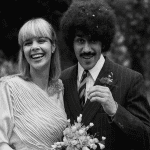Ailbhe Rea has become one of the most respected and recognizable voices in British political journalism. Known for her sharp insight, human approach to storytelling, and ability to decode Westminster’s complexities, she represents a new generation of political reporters who combine analytical depth with narrative clarity.
Her career spans respected media outlets and diverse storytelling formats, from magazine features and podcasts to daily political newsletters. What sets Rea apart is her accessible yet intelligent voice—a balance of empathy, authority, and curiosity that resonates with readers seeking trustworthy journalism in a crowded media environment.
Early Life and Education
Ailbhe Rea was born and raised in Belfast, Northern Ireland, a city whose political history and divided communities have shaped many of its journalists. Growing up in this environment gave her an early awareness of how politics affects everyday life—an understanding that would later influence her approach to covering Westminster.
She pursued her university education in England, studying humanities and politics at a leading institution. During her time at university, she developed a deep interest in public debate, media ethics, and the structures of political communication. Friends and colleagues from her early days often describe her as inquisitive, articulate, and already fascinated by how words shape power.
Rea’s Irish background and London-based career have since made her a bridge between two journalistic cultures. Her voice brings both insider knowledge of the British establishment and outsider perspective on how its decisions resonate across the UK and Ireland.
Career Beginnings in Political Journalism
After university, Rea entered the world of political journalism with a focus on explaining policy in plain English. Early in her career, she wrote for publications that valued narrative clarity and depth rather than gossip-driven political coverage.
Her writing quickly stood out for three reasons:
-
Accessible analysis – She could translate complicated political or economic policies into stories readers could understand without losing nuance.
-
Empathy and humanity – Her reporting often highlighted how decisions in Westminster affected ordinary people.
-
Calm authority – Unlike sensational commentators, she built credibility through accuracy, tone, and evidence.
These early years laid the foundation for her distinctive voice: analytical, humane, and firmly grounded in reality.
Rise to National Recognition
Ailbhe Rea rose to prominence through long-form political writing and audio storytelling. She became known for offering insight into how politics actually works—the negotiations, rivalries, and power dynamics usually hidden behind official statements.
Her work often focused on themes such as:
-
The cultural divides shaping modern Britain
-
The realities of policymaking after Brexit
-
The human side of political institutions
-
The role of women and young journalists in shaping political media
Her thoughtful tone and refusal to engage in performative outrage earned her respect across the political spectrum. Whether covering leadership races, cabinet reshuffles, or local elections, she presented politics not as theatre but as a system that determines how people live.
Podcasting and Storytelling Beyond Print
As audio journalism grew, Rea became a leading voice in political podcasting. Hosting a major Westminster-focused series, she used narrative storytelling to explain how the UK’s political machine functions—examining its quirks, rituals, and personalities.
Listeners appreciated her balance of insider detail and warmth. Each episode mixed historical insight, interviews, and behind-the-scenes stories, appealing both to political professionals and curious citizens.
Her success in podcasting demonstrated her adaptability. Rather than sticking to print, she embraced multimedia formats and understood that younger audiences engage with politics through sound, conversation, and story rather than opinion columns.
Transition to Editorial Leadership
In recent years, Ailbhe Rea moved into a senior editorial role at a major international news organisation, taking on the position of associate editor focused on British politics and public policy. In this role, she oversees coverage of Westminster, curates daily political analysis, and mentors younger reporters entering the field.
She is also known for writing a daily or weekly political newsletter that blends analysis, humour, and insider perspective. These newsletters have become must-reads among policymakers, journalists, and readers who want concise, informed updates about what really matters in government.
Through this platform, Rea continues to bridge the gap between traditional political reporting and the conversational tone of modern media. Her writing combines the rigour of old-school journalism with the accessibility of digital communication.
Reporting Style and Editorial Philosophy
Ailbhe Rea’s journalistic philosophy is guided by clarity, fairness, and trustworthiness. Her reporting style reflects several consistent traits:
1. Precision over speed
In an age of instant news and viral misinformation, she prioritises accuracy. Her analysis often appears a few hours later than others but is consistently more balanced and evidence-driven.
2. Context over drama
Rather than reducing events to winners and losers, she explains the systems and motivations that lead to political outcomes. Her work appeals to readers who prefer substance to scandal.
3. Empathy for subjects
Rea approaches politicians, activists, and ordinary citizens with empathy, even when she challenges them. This human-centred method encourages sources to speak openly and helps readers understand complex personalities.
4. Accessibility of language
She avoids jargon and insider shorthand. Her goal is to make politics understandable without simplifying it.
These values have earned her a loyal following among readers who value journalism as a public service rather than a spectacle.
Influence and Recognition
While Rea avoids self-promotion, her influence is visible in the way British political journalism has evolved in the past few years. More outlets now invest in explanatory, solutions-oriented reporting—an approach she helped popularise.
Industry peers often cite her as a role model for young women in political media. In an environment long dominated by older male voices, she represents a confident, data-literate, and empathetic form of political storytelling.
Her work has been highlighted in several media roundups for its clarity and fairness, and she frequently appears as a guest analyst on radio, podcasts, and panel discussions about journalism, democracy, and gender representation in politics.
Voice of a New Generation
Ailbhe Rea’s voice resonates because it reflects the post-Brexit generation’s relationship with politics: sceptical yet hopeful, critical yet constructive. She reports not just on political personalities but on systems of accountability, transparency, and public service.
Her background from Northern Ireland gives her unique insight into questions of identity, governance, and unionism—topics that often perplex London-based commentators. In interviews and essays, she has spoken about how growing up in a politically charged environment taught her to see every issue from multiple perspectives.
That sense of layered perspective is now her signature. Whether she’s dissecting a party conference or analysing a fiscal policy speech, she invites readers to think, not just react.
Mentorship and Representation
Beyond her writing, Ailbhe Rea mentors emerging journalists, particularly women and regional reporters aspiring to enter political media. She often participates in panel discussions about newsroom diversity and the challenges facing young writers trying to build reputations in competitive markets.
Colleagues describe her as approachable, generous with feedback, and committed to improving industry culture. She believes journalism must represent the full range of voices in society, not just those who can afford to live near Westminster.
Through mentorship, she ensures that political journalism continues to evolve toward greater inclusivity and integrity.
Public Presence and Social Media
Rea maintains an active professional presence on social media, where she shares political observations, links to her latest work, and light-hearted commentary on Westminster life. Her tone online mirrors her journalism: informed, witty, and respectful.
Rather than engaging in partisan arguments, she uses social platforms to promote discussion and clarify misconceptions. Her following includes fellow journalists, academics, policymakers, and politically engaged readers across the UK and Ireland.
Her social media handle—playfully referencing the pronunciation of her first name—has also become a small cultural nod to Irish identity within British media circles.
Personal Values and Approach to Work
While Ailbhe Rea keeps her private life off the public stage, her professional choices reveal strong guiding principles:
-
Integrity: refusing to sensationalise or distort facts for attention.
-
Curiosity: treating every political story as a puzzle to be understood rather than a battle to be won.
-
Respect: recognising the humanity of those she covers, regardless of political alignment.
-
Independence: maintaining editorial autonomy even within large organisations.
These values underpin her credibility and have allowed her to navigate the often polarised environment of UK political coverage without losing trust from any particular audience.
The Role of Ailbhe Rea in Modern Journalism
In 2025, political journalism faces intense challenges: declining trust, information overload, and the rise of opinion masquerading as fact. Amid this noise, Rea’s approach offers a roadmap for renewal.
She demonstrates that audiences still crave fact-based, thoughtful, emotionally intelligent reporting. Her combination of humility, expertise, and narrative skill bridges the gap between old and new media.
By focusing on service journalism—content that genuinely informs rather than inflames—she has become a standard-bearer for quality in an era dominated by speed.
Her work reminds both journalists and readers that democracy depends on understanding, not just outrage. In that sense, she embodies the best traditions of British and Irish political journalism while pointing toward its future.
Legacy and Future Outlook
Still early in her career by journalistic standards, Ailbhe Rea’s trajectory suggests she will continue to shape how political coverage is done in Britain. Whether through editorial leadership, teaching, or new forms of storytelling, her influence is set to expand.
In a time when media trust is fragile, her steady, principled voice offers reassurance that journalism can remain both responsible and compelling. She represents the idea that truth-telling and empathy are not opposites—they are the twin pillars of enduring credibility.
Conclusion
Ailbhe Rea is more than a political journalist; she is part of a generational shift redefining how we consume political information. With her roots in Belfast, her education in England, and her career in London’s media scene, she embodies the increasingly interconnected identity of British-Irish journalism.
Her commitment to clarity, empathy, and accuracy has earned her admiration from colleagues and readers alike. In a world saturated with noise, Ailbhe Rea’s work stands out for its calm authority and human warmth—a reminder that the best journalism doesn’t just tell us what happened, but helps us understand why it matters.










